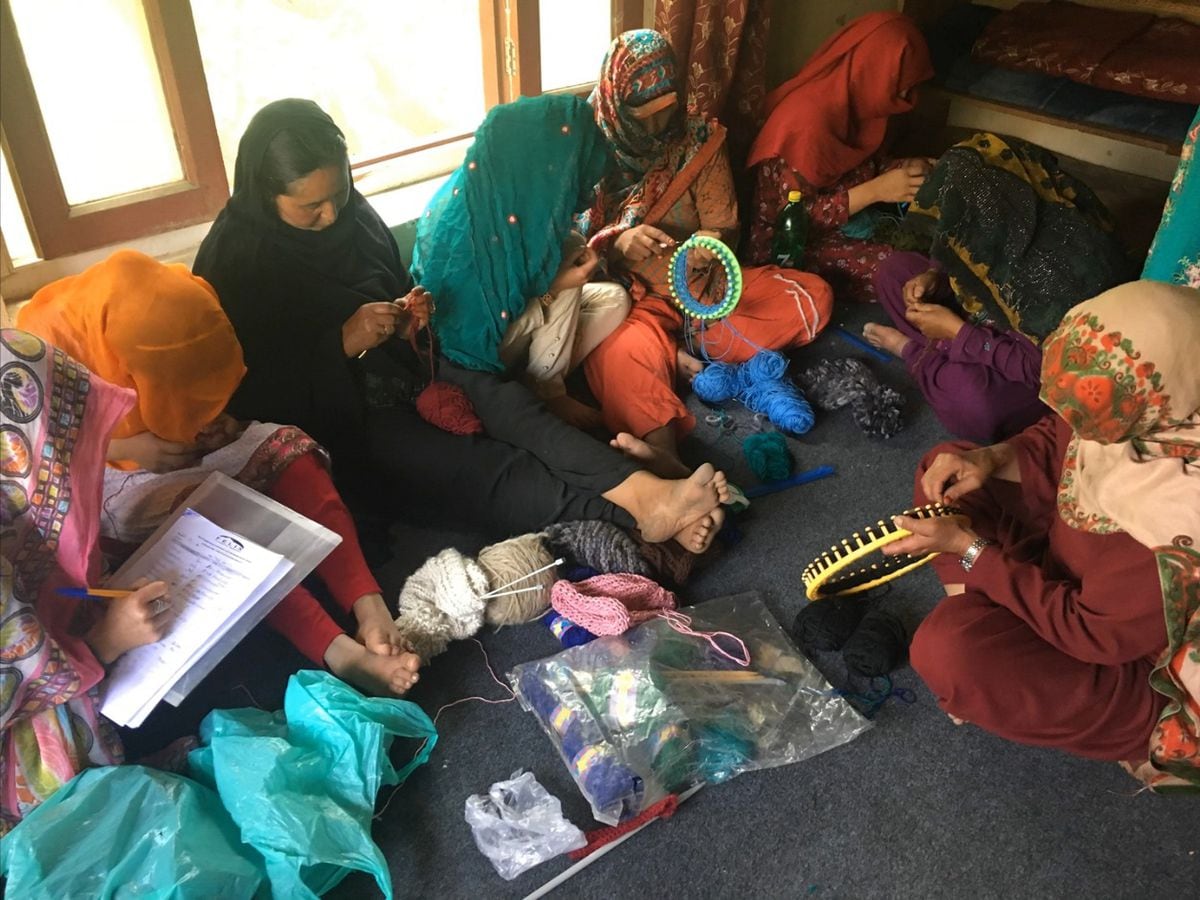The Hushé Valley is a region of Baltistan located at an altitude of about 3,000 meters, difficult to access and surrounded by several of the highest peaks in the world.
In addition to having to deal with all the problems of a developing place, this place has an even greater difficulty: it is an area of conflict between India, Pakistan and China, neglected by the Government of Pakistan, to which it belongs.
This situation hinders the progress of the population of the valley, which is also affected by health problems and extreme poverty.
A context where, in addition, women do not have recognized basic rights.
For five weeks we were on the roof of the world and at the foot of the Karakorum mountain range.
Nature is as raw as it is beautiful in Baltistan.
But, although the beauty of its landscapes is moving, the warmth and being of the people of the Hushé Valley is indescribable.
In the summer of 2019 I traveled to Machulo (Baltistan) in the north of Pakistan, with my 20 and 18 year old children and my husband. The mountaineer Félix Iñurrategi has been a friend of ours since he was very young and he wanted to know what his foundation was doing in those remote lands to help develop the area. One day, at dinner time, I asked my boys if they would dare to go. To my surprise, the yes was resounding. I went to Alberto Iñurrategi, Félix's brother, to ask him if he thought it possible to carry out this adventure: “Puff!” it was his first word; “How brave!”, the second.
The life of women is not easy in places like this.
According to Unicef data, Pakistan is the second country in the world with more students outside the classroom after Niger.
In 2017, the percentage of girls out of school reached 50% in the Hushé Valley region, which covers eight communities.
Access to education for little girls continues to be very unequal, since traditionally it has not been customary to send them to school.
Women carry out practically all the work on the land, but despite this, their work is not valued as a contribution to the economy and support of the family unit.
Women carry out practically all the work on the land, but despite this, their work is not valued as a contribution to the economy and support of the family unit.
So I asked myself: “And I, being a woman, what can I do there?”.
In the summer season, in Machulo it is apricot season, I thought I could help them pit them.
At the foundation they told me that they already knew how to do that, that I should bring them something new or something that could be more effective for them.
We thought she could teach them how to sew or how to make soap.
Although I had never held a needle or thread in my hand in my entire life, I spent a year learning to sew and I also learned to make soap.
With six days to go to Baltistan, Alberto Iñurrategi called me and told me that if they learned how to make winter wool hats, the Ternua brand might be willing to market them here.
So he suggested three or four different models.
I was glad I learned to sew, but I didn't know how to knit or crochet.
Still, the truth was that we had an opportunity for the women of the Hushé Valley.
In the evenings I learned how to crochet with internet tutorials.
I loaded my backpack with crochet hooks, needles and yarn and left with my family for Machulo.
Each of us had a specific task from the beginning.
My children spent the day with the valley teachers training them in computers and English.
My husband, for his part, spent his days encouraging those responsible for the Félix Baltistan Foundation so that the neighbors could create small cooperatives.
I was with 50 matriarchs from four towns in the valley teaching them how to make soap and knit hats.
It was the summer time. The women, unlike the men, were bustling with work. They are the ones who take care of the family, the house and even work in the fields. But every morning from 10:00 a.m. to 1:00 p.m. we met in the premises that the foundation has set up. It was his moment of liberation! In the presence of a man, not the slightest murmur could be heard. Any. As soon as we were alone, the talks and the laughter did not stop.
Baltistani women do not speak English or Urdu.
Neither do I!
But languages were never an obstacle.
Every morning I would say three or four sentences to them in Balti and say that they felt comfortable.
Later, in the midst of so much uproar, he spoke to them in Basque: “bat, bi, hiru” (one, two, three), “kanpotik barrura” (from outside to inside), “gehiago, gehiago” (more, more), “bear ondo” (very good) I told them and, in small groups, it is what they constantly repeated among themselves.
They learned to weave hats in Basque.
It was a real joy!
After two years, the work done by the women of the Hushé Valley is here.
A job that indicates that in that valley they have a lot to say.
Aintzane Gardoki
is a Special Education teacher (Arizmendi ikastola) and a volunteer for the Baltistan Foundation.

